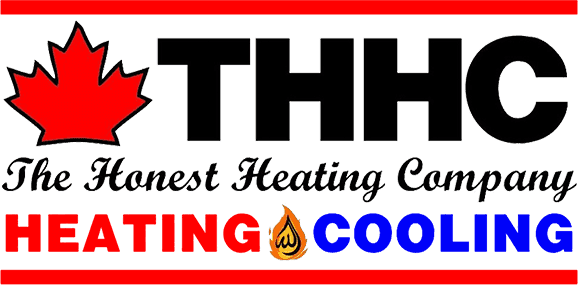Understanding Your Heating System
Before we delve into the intricacies of heating problems and their solutions, it's essential to understand the basics of your heating system. In Kitchener, ON, homeowners use various types of heating systems, each with its unique set of components and operating principles.
Types of Heating Systems
Forced air systems, radiant heat systems, and hydronic (hot water baseboard) systems are the most common types of heating systems. Forced air systems use a furnace to heat air, which is then distributed throughout the house via ductwork. Radiant heat systems, on the other hand, generate heat through hot water tubes or electric wires installed under the floor or in the walls. Hydronic systems, also known as hot water baseboard systems, use a boiler to heat water, which is then circulated through a system of pipes to radiators installed around the home.
How Heating Systems Work
Regardless of the type, all heating systems follow a similar operating principle. The process begins at the thermostat, which senses the room temperature and sends a signal to the heating system when the temperature drops below the set level. This signal initiates the heating cycle, where the heating system generates heat and distributes it throughout the house until the desired temperature is achieved. Once the thermostat senses that the set temperature has been reached, it sends another signal to the heating system to stop the heating cycle.
Common Heating Problems
Despite their robust design and construction, heating systems are not immune to problems. Some issues are minor and can be resolved with basic troubleshooting, while others require professional intervention. Understanding these common problems can help you identify when your heating system needs attention.
No Heat or Insufficient Heat
The most common heating problem is no heat or insufficient heat. This issue can be due to a variety of factors, including thermostat issues and dirty or clogged filters. If your thermostat is not set correctly or is malfunctioning, it may not send the necessary signals to initiate or maintain the heating cycle. Similarly, dirty or clogged filters can restrict airflow, reducing the system's heating capacity and efficiency.
Unusual Noises
Another common problem is unusual noises, such as rattling, whistling, or banging sounds. These noises can indicate various issues, including loose or broken components, air in the heating system, or high pressure in a boiler system. While some noises can be resolved by simple adjustments or part replacements, others may require more extensive repairs.
Frequent Cycling
Frequent cycling, where the heating system repeatedly starts and stops the heating cycle, is another common problem. This issue can be due to thermostat calibration issues, overheating, or a system that is too large for the space it is heating. Frequent cycling not only reduces the system's efficiency but can also lead to premature wear and tear.
Troubleshooting Your Heating System
While some heating problems require professional intervention, others can be resolved with basic troubleshooting. Here are some steps you can take to identify and potentially resolve common heating problems.
Checking the Thermostat
The first step in troubleshooting your heating system is checking the thermostat. Ensure it is set to the correct temperature and mode (heating), and the batteries are not dead. If the thermostat is wired, check for loose or disconnected wires. If the thermostat is digital, ensure the settings are correct and the screen is not blank, which could indicate a power issue.
Inspecting the Filters
Next, inspect the filters. Dirty or clogged filters can restrict airflow and reduce the system's heating capacity and efficiency. Depending on the type of filters your system uses, you may be able to clean and reuse them, or you may need to replace them. Remember, regular filter maintenance is crucial for the optimal performance of your heating system.
Examining the Heating Unit
Finally, examine the heating unit. Listen for unusual noises, check for signs of overheating (such as a burnt smell or discoloration), and ensure the unit is not leaking. If you notice any of these issues, it's best to call a professional.
When to Call a Professional
While basic troubleshooting can resolve some heating problems, others require professional expertise. Recognizing when to call a professional can save you time, money, and potential damage to your heating system.
Recognizing Serious Problems
Leaks, water damage, and electrical issues are serious problems that require immediate professional attention. Leaks can cause water damage and potentially lead to mold growth, while electrical issues can pose a fire risk. If you notice any of these issues, turn off your heating system and call a professional immediately.
The Importance of Regular Maintenance
Regular maintenance is crucial for preventing common problems and extending the lifespan of your heating system. A professional can inspect your system, identify potential issues before they become major problems, and perform necessary maintenance tasks, such as cleaning and adjusting components, testing controls, and checking for leaks and corrosion.
Energy Efficiency and Your Heating System
Heating problems can significantly impact your system's energy efficiency, leading to higher energy bills. On the other hand, regular maintenance and system upgrades can improve efficiency and save you money in the long run.
The Impact of Heating Problems on Energy Use
Heating problems, such as dirty filters, thermostat issues, and frequent cycling, can reduce your system's efficiency, leading to higher energy use and costs. Regular maintenance can help prevent these problems and keep your system running efficiently.
Upgrading Your Heating System
If your heating system is old or inefficient, consider upgrading to an energy-efficient model. Energy-efficient heating systems use less energy to produce the same amount of heat, reducing your energy bills and environmental impact. Look for models with Energy Star ratings, which meet strict energy efficiency guidelines set by the Environmental Protection Agency.
If you're in Kitchener, ON and need professional help with your heating system, don't hesitate to contact The Honest Heating Company. We offer a range of services, including troubleshooting, repairs, maintenance, and system upgrades. Our team of experienced professionals is committed to providing honest, reliable, and high-quality service. Contact us today to schedule a service appointment or to learn more about how we can help you keep your home warm and comfortable.

